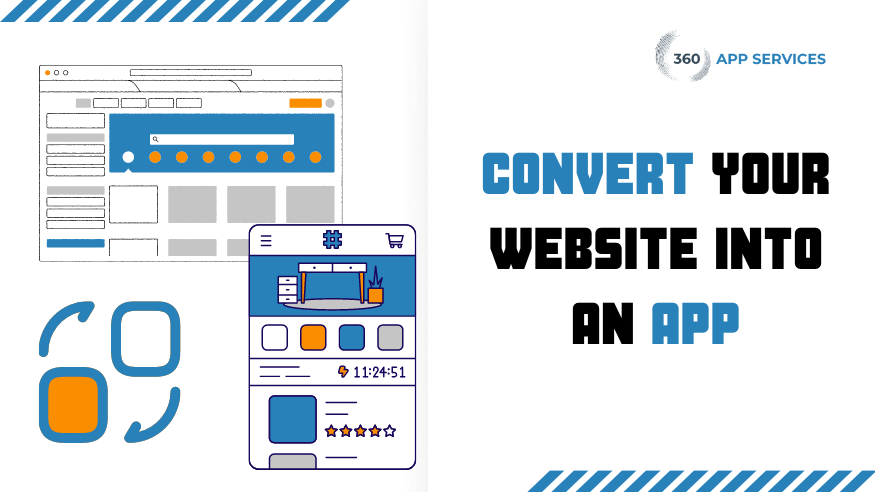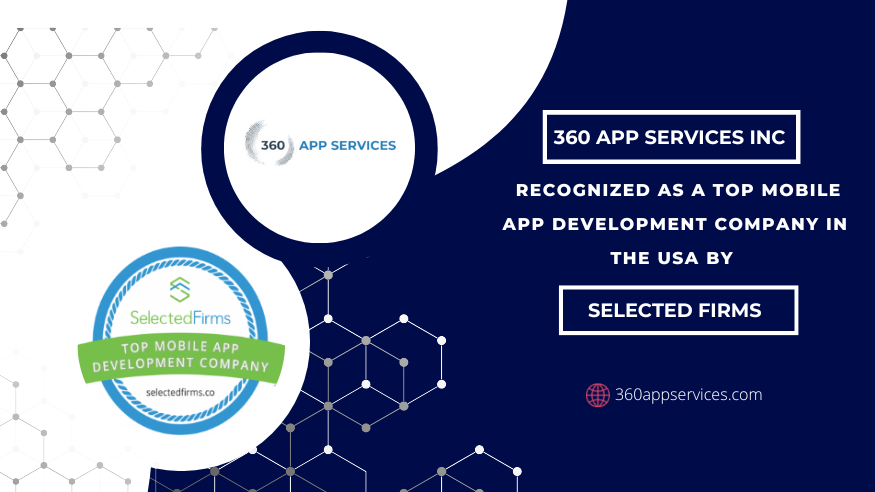

With the advancement of smartphones, the world is rapidly changing with each passing day. People now prefer to get insights into what is happening worldwide with a simple touch on their smartphones’ screens.
As per a recent report, mobile app spending has reached the sky of approximately $133 billion worldwide. It may have occurred due to the Coronavirus pandemic, but increased smartphone use is here to stay.
Anything you want to know about a particular brand can be delivered to you quickly due to these advancements. Many businesses are perplexed about whether they should build a website or an application for their products to be accessed easily by their customers. As a result, owning a website is great, although apps are comparatively more optimal for serving your loyal customers.
Nowadays, people are more used to mobile apps rather than a website. Apps have become a common component of everyone’s life. You can see all your favorite apps covering the home screen of your smartphone. The possibilities are endless – some may be fitness tracking apps, finance apps, social media apps, or entertainment apps.
We understand that owning a website is good for business. However, there are scenarios where you want to remain in touch with your audience at all times. Now, this is a great scenario for converting a website into an app. It allows your customers to receive regular updates and remain in touch. Consequently, businesses enjoy better communication and healthy conversion rates.
Do you want to convert a website to an iOS or Android app? This guide will cover all the essential information you need to help you convert a website into an app. Therefore, you will take the full benefit of the webpage to mobile app development services.

There are many ways through which you can convert a website to a native app. We will shed some light on the basic methods and their advantages and drawbacks, too. So, here are the crucial details:
You can easily convert a website to an iOS app or an android app by yourself. All you need is a dedicated native app development team for this purpose. Here are the pros and cons of converting a website to a native app on your own:
This method to convert a website to an iOS app or an android app is perfect for business owners with a budget. This is the market segment that lies in the middle. They are willing to outsource their website conversion but cannot afford to pay the price of working with a website into an app conversion expert.
If fortune smiles on you, a startup will find an excellent freelancer who knows his/her job. But if they get unlucky, things might not turn out so well for the business. Hiring a freelancer to convert a website to a native app comes with these benefits and limitations:
Practically speaking, this method to convert a website into an app is best for businesses looking for a flexible approach by relocating mobile app development to dedicated experts or agencies.
Usually, innovative SMB companies take this path. It allows them the benefit of working with multiple developers with the right skills to convert a website into a complete mobile app.

Mobile apps are more versatile as compared to websites and, indeed, serve your audience better. However, if you already have a website, do not worry. There are numerous website-to-app conversion experts who can easily convert your site to a native app.
Selecting a mobile app over a responsive website depends on the target audience and the preferred medium of users. However, businesses often have a good idea of consumer behavior. In addition, startups can enhance their decisions by learning more about the market through primary and secondary research. Here are some crucial factors in making this decision:
Unlike websites, mobile apps can function without the internet. Although many mobile apps need internet access to run or update their tasks, they can offer content and services even if your device is not connected. This offline ability is quite a decision-maker for many users.
You don’t have to worry if your business has a website. You can always convert the website to an iOS app. This advantage allows people to get insights into your business no matter where they are.
Mobile apps are comparatively more user-friendly and provide versatility compared to a website. An app offers you to introduce value to your audience through a new channel. In contrast, websites have a limited user interface and programmability.
Apps can integrate exciting features to keep users engaged. Not only are mobile apps easy to use, but they also help you to keep your customers stay updated through in-app notifications.
People can set their preferences promptly when they download an app. Users can customize options and different settings, offering a customized experience. Mobile apps save user preferences, allowing your business to learn user behaviour. These results then enable businesses to improve their native app continually.
Unlike websites, mobile apps keep a constant connection with business users. They can receive instant updates and recommendations made possible through smart UX solutions. Websites can be interactive but fail to offer the same level of customization.
Mobile apps are dynamic by nature. A responsive website still depends on running on the same platform to offer customization. Yet, mobile phones are personal devices. They improve overall engagement and offer better engagement rates. Thus, better customization aids customers in getting the most out of mobile apps.
Statistically speaking, the numbers favour mobile apps rather than websites. Businesses can make up their mind more coherently and understand why they must consider converting websites to native apps.
It is the right time to convert a website to an iOS app or an Android app if you plan to provide mobile-friendly and easy-to-use content to your audience. Customers can engage, communicate, and interact more through an app than on websites.
However, smart businesses leverage both responsive websites and native apps. It gives them multiple platforms to connect with more people and get the best results. Connect with us to learn how you can convert your website into an app.

Ultricies augue sem fermentum deleniti ac odio curabitur, dolore mus corporis nisl. Class alias lorem omnis numquam ipsum.


